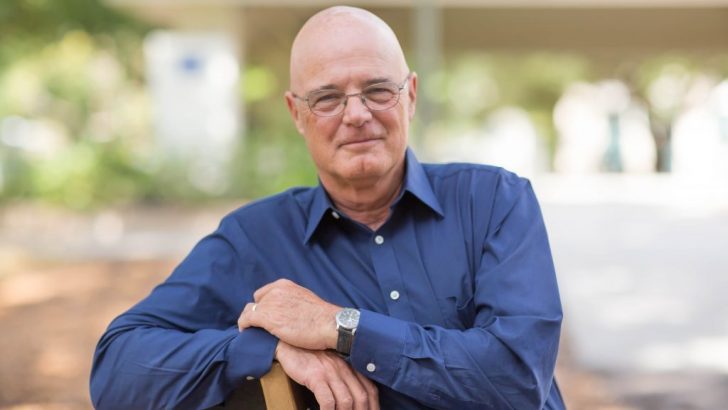Faith after Doubts: Why your beliefs stopped working and what to do about it
by Brian McLaren (Hodder and Stoughton, £14.99/€19.50)
I was greatly impressed by this book, and at the start of my review I would like to make quite clear that this is a book that anyone who wishes to understand the nature of faith, doubt and spiritual growth ought to read – no – will want to read.
The author Brian McLaren has had a difficult journey of faith, as he explains at the beginning of the book, and returns to again and again as he progresses. But it has brought him to a place of peace.
Doubts
Having myself harboured doubts about aspects of religion since the age of seven, I have experienced or witnessed or been told about many of the crises of conscience which he relates in the first part of this book. Indeed I had to pause there: the stories he had to tell of the damage and division that ‘true faith’ has caused so affected me – tales of individuals expelled not only from their churches, but from their families and communities. But let Mr McLaren himself explain what he is trying to do and why he came to write it:
“I’ve organised Faith After Doubt in three movements,” he writes. “In Part One, Your Descent into Doubt, I try to help you understand why your doubts can be so scary and painful.
“In Part Two, All in Doubt, I present doubt not simply as a deterioration process but as a growth process that provides you with an opportunity to mature intellectually, spiritually, morally and relationally.
“I base this section on a four-stage theory of faith development that integrates the insights of many major theorists in the fields of human, moral, intellectual and spiritual development.
“In Part Three, Life After (and with) Doubt, I turn to the future, exploring how to live with doubt as a companion rather,” he writes.
I found the stories of loss of faith in the first part of the book so affecting that for a couple of days I had to put aside the book. These anecdotes of destiny were too familiar, so haunting, so true to one’s own life and experience that it was impossible to go on.
But as the developments were so relevant so convincing that one saw that this book, while it may disturb some of ‘solid faith’, it will enable others to move forward. Not to abandon what they had, but to keep it, to grow out of it, in some cases like the butterfly breaking through the hard shall of the past, releasing itself into another kind of life. But the life of a butterfly is momentary.
Here the author wishes to enable a life of a new kind to emerge from the old, while keeping the old, but shedding the strictness that prevented growth, to find in his own structures, and the way to live more fully the truth they had once held.
Struggle
Again, in explanation of his book Brian McLaren writes: “This book distils 40-plus years of personal struggle, heart-to-heart conversations and cross-disciplinary research about doubt: why it’s unavoidable; why, in fact, it’s necessary and valuable; and how to live with it and learn from it.”
The explanation of the role of doubt in matters of belief goes to the heart of the matter. It will enable many Christians to find a way to a fuller Christian maturity. It will also enable others to find that the very things they felt undermined those beliefs as a child, will enable them to live beyond and to put away childish things.
Stories
The extraordinary stories of faith and doubt in the first part are brought into context by the other part, as he explains: “The research component is significant, because insights from psychologists, neurologists, evolutionary biologists, sociologists, anthropologists and even political scientists can help us understand the many inter-related dimensions of our doubt. When we bring their research into conversation with theologians and other scholars of religion, everyone has something to learn.”
The final aim and ambition of the book is summarised by the author in this way: “But of course, all this scholarly insight must be put into conversation with down-to-earth stories. Then, we need to translate our best insights into practical guidance that is accessible to normal people who are simply trying to make it through another week without losing faith, without falling into despair, paralysis, complacency or dishonesty.”
That appeal to the needs of normal people comes from his own experience, which he writes about in so revealing and heartening a way. He may have left the pastoral life in an evangelical church; but the inner drive to experience and to know the truths of religion has not deserted him.
He has sought ‘the way’, his way, and wishes to share with others, not just with his fellow evangelicals, his Catholic friends and teachers such as the Franciscan Fr Richard Rohr, with Muslims, Buddhists and others.
A mere review or notice cannot do full justice to this book. Only reading it can. This is very certainly a book that many will mark a moment of real change.


 Peter Costello
Peter Costello
